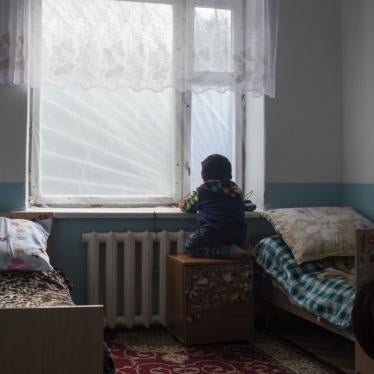Dear Venice Commission Member,
Re: Right to vote of people with disabilities
Human Rights Watch and the Mental Disability Advocacy Center (MDAC), urge you, inyour capacity as a member of the Venice Commission, to amend the Interpretative Declaration to the Code of Good Practice in Electoral Matters on the Participation of People With Disabilities in Elections [CDL-AD(2010)036] in your upcoming session on 14-15 October 2011. It is incumbent that this issue be slated on the agenda of the next meeting and discussed in public, in order to promptly address the inconsistencies between this declaration and international human rights law.
The current version of the Interpretative Declaration does not meet the standards set out in the UN Convention on the Rights of Persons with Disabilities (CRPD), which has been signed by all Member States of the Council of Europe and ratified by 29 Member States and by the European Union. The CRPD articulates basic guarantees of political participation, including the right to vote and stand for election. These rights apply to all people who satisfy age and citizenship requirements of a given electoral system, including people with disabilities, without discrimination. These include people with mental, sensory, intellectual, cognitive, or physical disabilities who may need adjustments and forms of support, such as ramps, Braille documents or personal assistants, to have equal access to the democratic process.
As you know, the Venice Commission is considering proposals which recommend that States allow a judge to remove the right to vote from an individual who “lacks proper judgment” (a proposal made in writing by the Venice Commission secretariat to MDAC, 12 April 2011) or “lacks voting competence” (a proposal suggested by the Dutch member of the Venice Commission, 18 June 2011). These proposals undermine the principle of non-discrimination and equality before the law articulated in Articles 12 and 29 of the CRPD. Article 29 of the CRPD contains provisions that specifically guarantee the right to vote for all people with disabilities, without exception, obliging states parties to "ensure that persons with disabilities can effectively and fully participate in political and public life on an equal basis with others . . . including the right . . . to vote and be elected."
The CRPD also stipulates in Article 12 that states parties "shall recognize that persons with disabilities enjoy legal capacity on an equal basis with others in all aspects of life," which includes voting and political participation. Given these clear standards, we submit that public officials, including judges, should have no role in adjudicating who is fit, able, or worthy enough to cast a vote, and neither is there any valid test that would enable them to do so. The current proposals would, in our organizations’ view, constitute disabilitybased discrimination, since people with disabilities – particularly intellectual or mental disabilities – would be unfairly and disproportionately subjected to the proposed voting test. The wording of the proposed tests (i.e. restrictions on the right to vote) is not taken from any of the international treaties that apply to the right to vote and therefore would be an inadmissible restriction on that right. Furthermore, by adopting such language, the Venice Commission would open up the dangerous practice of allowing electoral commissions to decide who is or is not competent to vote, a process that would be ripe for abuse.
We have been working with other organizations in various countries to raise awareness of the issues at stake. You can find more information and analysis at: www.savethevote.info. We invite you to attend a number of events planned in the next month to discuss with civil society the benefits of adopting a document that fully supports universal suffrage.
Human Rights Watch and the Mental Disability Advocacy Center are keen that the Venice Commission’s important work to promote democracy and the rule of law is not undermined by a regression of existing international human rights law, which would allow for the disenfranchisement of people with disabilities. We urge you and your colleagues to amend the Interpretative Declaration in line with the CRPD and fully support universal suffrage for people with disabilities.
Yours sincerely,
Kenneth Roth Oliver Lewis
Executive Director Executive Director
Human Rights Watch Mental Disability Advocacy Center








